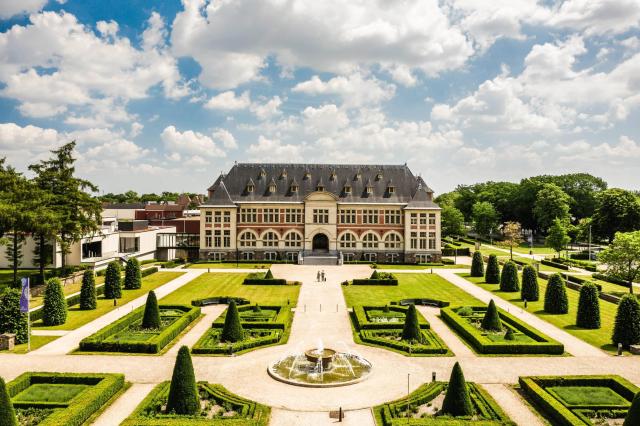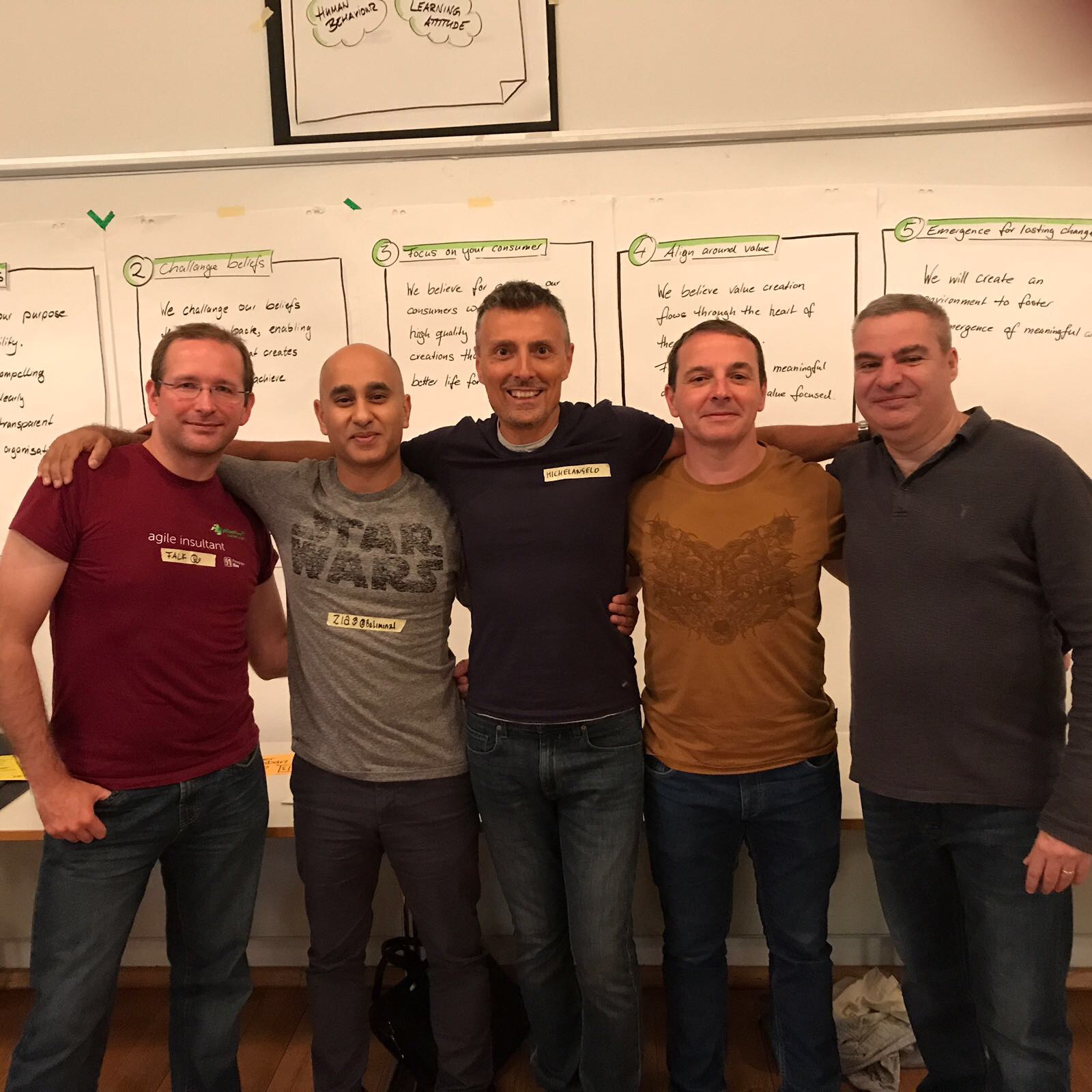
We are happy to announce the Agile Coaching Retreat Belgium (September 2025) – read all about it in this post.

We are happy to announce the Agile Coaching Retreat Belgium (September 2025) – read all about it in this post.
Collaborate with your fellow agile coaches, learn from each other and produce valuable outcomes that help transform the world of work. It’s also about making valuable connections that continue long after the retreat’s conclusion. This is a dynamic networking and skills-building retreat, featuring meaningful and actionable interactions via a robust new selection of events.
Price includes Retreat registration fee, two-nights accommodation, and some meals during the event.
18500 State HWY 1
Marshall, CA 94940
Agile Coaching Retreats are built around the principles of Retreat, Scrum, Deep, Long, Shared Learning, Two Sleeps, and Slack. These retreats are designed in such a way that the participants determine what is most valuable for them create together. In addition to the focused time to practice coaching skills, network and create, there will also be a keynote speaker to provide expert insights on coaching.
Principles: The Scrum Alliance Agile Coaching Retreat is developed in alignment with the agile/Scrum values and we curate the event to guide your work and connections:
The Scrum Alliance Agile Coaching Retreat is for anyone interested in agile coaching or those who want to grow their coaching skills, connect with other agilists, and build something helpful for the agile community at large in the process. We invite agile coaches of all levels to attend the retreat.
Aspiring coaches will find Scrum Alliance’s Path to Coaching video series helpful to understand what professional coaching is and gain insight into specific coaching competencies such as systems coaching, scaling, coaching leaders, and maintaining sustainable agility.
What will I gain from attending?
Those on the path to becoming a Scrum Alliance Certified Agile Coach will also gain the following:
Aspects of this retreat may also contribute to the following sections from Part 1 of the CEC or CTC applications:
Agile Coaching Retreat Wine Country 2024 will be held at Lodge at Marconi
18500 State HWY 1
Marshall, CA 94940
Lodge at Marconi has a rich history as a landmark of the destination; the property was originally built in 1914 as a radio receiving station by Guglielmo Marconi, often credited as the “inventor of radio.”
In the early 1960s, a rehabilitation facility known as Synanon took over the site, eventually becoming an infamous “alternative lifestyle community” that eventually dissolved. In recent years, it primarily served as a site for non profit and corporate retreats, conferences, and weddings.
Its location within Tomales Bay showcases the natural beauty of the West Marin coastline. The region is best known for its abundance of outdoor pursuits, vineyards, creameries, and oyster farms. It is conveniently located only an hour away from San Francisco and mere miles east of the extraordinary Point Reyes National Seashore.
https://lodgeatmarconi.com/experience/



Join with a friend coach and experience and shared loft experience:

Registration is easy – https://events.bizzabo.com/acrwinecountryusa


Join us in Adelaide’s Barossa Valley! We welcome anyone who has a passion to explore and improve their #agilecoaching approach. Attendees range from new #scrummasters to aspiring and experienced #agilecoaches, #productowners, #changeprofessionals, and #agileleaders.
🎟️ Tickets are limited! Buy your tickets now at https://lnkd.in/geYKYiqU
🗓️ 𝐒𝐀𝐕𝐄 𝐓𝐇𝐄 𝐃𝐀𝐓𝐄
𝟭𝟴𝘁𝗵 𝘁𝗼 𝟮𝟬𝘁𝗵 𝗢𝗰𝘁𝗼𝗯𝗲𝗿 𝟮𝟬𝟮𝟰
💥 𝐉𝐮𝐬𝐭 $𝟗𝟎𝟎!!! 𝐓𝐡𝐢𝐬 𝐢𝐧𝐜𝐥𝐮𝐝𝐞𝐬:
👉 All meals
👉 King room, single occupancy
👉 Bus transport to and from Adelaide Airport
You can find more answers about this retreat at the FAQ https://lnkd.in/gy7rHAui
You can find more info about Agile Coaching Retreats, in general, at https://lnkd.in/gVBuaj2N
The Agile Coaching Retreat stands apart from typical conferences or gatherings, where discussions often only skim the surface of topics. This retreat is a deep immersion into the heart of agile coaching, offering a unique opportunity to thoroughly explore and engage with the issues that matter most to you. Over the course of two days, you won’t find yourself sitting through presentations or workshops. Instead, you’ll have the freedom to identify the challenges you’re passionate about solving. Collaborating closely with a team of fellow Scrum Masters, change agents, agile coaches, and certified professionals, you’ll dedicate your efforts towards creating meaningful solutions. The results are defined by your imagination and initiative — previous retreats have seen the creation of innovative agile games, comprehensive product canvases, and insightful leadership assessment toolkits, among others. What’s more, the impact of this retreat often extends beyond its duration; many participants continue to refine their projects, with some even showcasing their achievements at conferences. This retreat is not just an event; it’s a catalyst for ongoing development and collaboration in the agile community.
🏨 𝐓𝐇𝐄 𝐕𝐄𝐍𝐔𝐄
The Novotel Barossa Valley Resort is centrally located overlooking the vines of Jacob’s Creek and the Barossa Valley Ranges. With 140 accommodations rooms all featuring balconies you will be immersed in the beautiful regional setting. Adjacent to the Tanunda Pines Golf Course and near the Barossa Cycling Trail, there is plenty of outdoor activity to enjoy while in the Barossa Valley. At Novotel Barossa Valley Resort, enjoy a relaxing, resort-style getaway just a short drive from the Adelaide city centre. Each of the refurbished spacious rooms have every amenity required for a great retreat experience. Chefs from the Cellar Door restaurant work with small local farmers and growers to create seasonal menus that reflect the unique terroirs of the Barossa and showcase its extraordinary produce.
And the retreat is complete! The teams have uploaded their outcomes/outputs. Please feel free to explore all of the goodness. For your viewing pleasure, we offer this video of the experience.
We have completed an amazing new experiment with Agile Coaching Retreats! In 2020 we had a giant experiment – a virtual and global retreat for 5 days in 4 time zones. And in 2021 we continue holding retreats virtually, but now we have experimented with a language-specific retreat – Mandarin! Mandarin speakers from around the world united virtually and created amazing connections and outcomes. Check out the Mandarin retreat pages and their website to check out their awesome results. It’s time to practice your Mandarin!
Mike Cohn, Mountain Goat: https://www.youtube.com/watch?v=-AW7NBocN64
Marita Frijhon, CRR Global: https://www.youtube.com/watch?v=rOegsBc0f3A
Dr. Dave Cornelius: https://www.youtube.com/watch?v=YA-dg6vwAEY
http://enterpriseagilemanifesto.org
Vision
For Agile Coaches to understand the principles that allow for enterprise agility to flourish.
Principles
1. Identify Motives
We are clear in our purpose for embracing agility. Our unique and compelling reason will be clearly articulated and transparent across the whole organisation.
2. Challenge beliefs
We challenge our beliefs that hold us back, enabling positive impact that creates the motivation to achieve anything.
3. Focus on you customer
We believe by engaging our customers we strive for high quality and purposeful creations that lead to a better life for them.
4. Align around value
We believe that value creation is the heart of our existence. Focussing on meaningful alignment around value flow allows for the emergence of effective systems.
5. Emergence for lasting change
We will create an environment to foster the emergence of meaningful and lasting change.
6. Learning attitude
We are encouraged to connect and grow, to give feedback to create life long learning opportunities. By learning continuously we will keep improving.
7. Respect the journey
We acknowledge the past and embrace the future of our never ending journey, understanding that as we move forward we will gain knowledge and face obstacles in discovering and achieving our goals.
8. Overcome inertia
Through continuous improvement and transparency we overcome resistance to prosper with no limits.
9. Human behaviours
People are the heart of our inspiration. We create safe experiences and environments that allows autonomy to support positive desired behaviours.
10. Coaching sustainability.
Organisational development is driven from within. Capabilities for catching are inherently built and grown independently.
Authors

Welcome to the “Infinite Game” team pages.
We take the name of this page from a book by James Carse called Finite and Infinite Games. Of the book, amazon.com says:
“There are at least two kinds of games,” states James P. Carse as he begins this extraordinary book. “One could be called finite; the other infinite.”
Finite games are the familiar contests of everyday life; they are played in order to be won, which is when they end. But infinite games are more mysterious. Their object is not winning, but ensuring the continuation of play. The rules may change, the boundaries may change, even the participants may change—as long as the game is never allowed to come to an end.
We also call ourselves the Kirkegaard Group after Danish existentialist Søren Kirkegaard. Kirkegaard is best known for his “leap of faith” philosophy, based on taking a decision to affirm some reality in the absence of evidence for that reality and even in the presence of evidence to the contrary: faith is therefore more than belief, but a choice to act.
The group’s position stands on the foundation that we couldn’t find anyone else at the retreat who has actually ever seen a team that is fully practicing Scrum, without some element of Scrum-butt. We have seen such teams and believe that lack of management constraints is the differentiating factor. Scrum fails to thrive in organizations because some aspect of the environment or of management policy takes away the power of the Product Owner, or the autonomy of the Team, or the authority (ownership of the process) of the ScrumMaster. Coaches who are hired to do transformations do not persevere in removing this interference out of fear of being fired, and they rather help teams “suck a little less.”
Our position is that Scrum isn’t about helping teams suck a little less. Its roots in TPS in Japanese manufacturing are not about helping their products and environments suck a little less. Our perception is that most contemporary coaching dialectic is about helping teams suck a little less. We still need kaizen (incremental, low-risk change at the team level) but also kaikaku (more radical change that often entails management involvement). We have been fired. And we have helped clear the way so teams could do great things.
So we believe great coaches are existensialistic. They acquire learning not to enhance their marketing plan but because it is the right thing to do. They are fearless about being fired. They put flesh in the game. They take only those engagements where it is possible to do great things. They are unafraid to confront managers with the fact that they might misunderstand Scrum.
✥ ✥ ✥
Since this is a collaborative community effort, we would like your contribution a s well. Please share your story of working with distributed teams with us. You can contact us, Alex and Reinald, via email:
alexkylburg@gmail.com
reinald.kirchner@gmail.com
You can have an eye on the progress in Work here:
https://docs.google.com/document/d/1fZPnORxg7-KMWjk5LCNfc6LH7MS_nCeJG31b81nhhsM/edit?usp=sharing
Just some Pictures
Some more Pictures
For the first time there will be 2 Scrum Coaching Retreats in Europe in the same year. In 2017 we will be going to Kiev in May and Copenhagen in September.
Please save the dates in your calendar, the venues and other details will be announced later.
Team ToB
Sprint 1 – Lack of trust